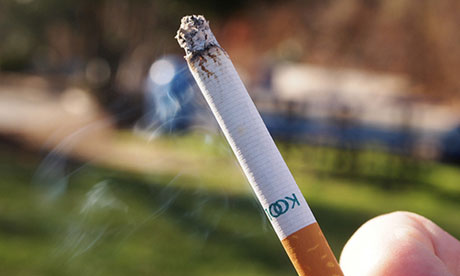
Back in the mid-80s I had the educational pleasure of visiting Berlin, East and West, on a school trip. The train we travelled on stopped at the border with East Germany, and we heard a sinister clanking as the border guards secured the carriage doors with lengths of metal chain.
When we travelled into East Berlin the dull and grey streets stood in stark contrast to the almost excessive exuberance of the British Sector. The State-run Apotheken in particular were drab and depressing, a stark reminder of the choice and service we were used to. A few of us carried packets of cigarettes, to trade for Soviet memorabilia or in case we needed to bribe the East German soldiers.
I didn't have any cigarettes on me: to this day I have smoked fewer than ten cigars, and no cigarettes at all. I hate cigarette smoke. I hate what it does to walls and the atmosphere and my lungs. I hate the effect it has on unborn children. I used to avoid going into pubs because I would start sneezing and come out reeking of tobacco. I hate the stench of death clinging to patients on drips outside hospitals.
Despite this, I am more than a little uneasy at the creeping demonisation of smokers by society. While I readily acknowledge that smoking is deeply unpleasant to non-smokers, and that it is a sure way of digging oneself an early grave, I am far from convinced that proponents of the nanny health agenda are doing a good thing.
I also applaud the government's decision to delay the introduction of plain packaging for cigarettes.
A paper recently published in British Medical Journal Open claims that the Australian experiment reduces smoking appeal, and supports the plain packaging policy. But take a look at that paper: a handful of people had more "thoughts about quitting". It is a tiny sample (compared with the total number of smokers), and those p values look incredibly shaky to me. It's true the study found that thoughts about quitting did predict quitting attempts, but quitting attempts are notoriously unsuccessful. There is no credible evidence that plain packaging achieves the primary endpoint of reducing smoking.
The Australian experiment is of course far too young to draw any conclusions. What's more, it is too early to assess the impact of unintended, unforeseen consequences. (If ever a nanny state should have experience with unforeseen consequences it would be Australia, where, when cycling without a helmet was made illegal, the cyclist death rate went UP.) We do not know what would happen to the cigarette black market, to duty-free imports, to … anything else that I can't think of because the consequences are unforeseen.
But it's not just about health benefits and economic and other consequences. It would be brilliant if everybody just gave up, and nobody ever felt the desire to pick up their first cigarette. The genie, unfortunately, is out of the packet. We have had free access to cigarettes – and consumer choice in that access – for such a long time that it looks to me like a right. And a democracy should protect the rights of its minorities, even the rights of people to choose how to die.
What about my rights not to be abused by tobacco smoke? Well, I think we've actually done a fairly good job there. I cheered the smoking ban, and going to the pub no longer fills me with dread.
The thing is, the prospect of plain packaging of cigarettes reminds me strongly of visiting East Berlin. Plain packaging is deeply opposed by many people – not just tobacco companies, retailers and special interest groups. Even if plain packaging were a successful intervention and decreased the number of cigarettes smoked, it is a Soviet era-style restriction that does not sit well in a liberal democracy.
An assault on personal freedoms in the name of health is still an assault on democracy. Isn't it?
Richard Grant is a scientist-turned writer who thinks tax revenues on cigarettes should be increased and the money used to fund education. He wibbles on Twitter as @rpg7twit

